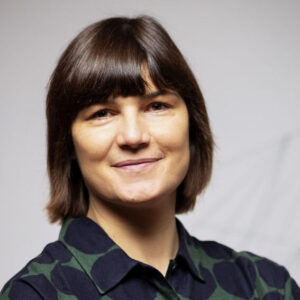The Federal Minister for Digital and Transport, Dr. Volker Wissing, today presented funding notifications amounting to approximately 1.38 million euros for the research initiative: ‘E-bus 2030+’. The Berlin’s Berliner Verkehrsbetriebe (BVG) transport authority, the Reiner Lemoine Institute (RLI) and the Technical University of Berlin (TUB) are involved in the project.
The objective is to develop an integrated software solution for a holistic electric bus system in public transport, in order to be able to reliably and economically use emission-free buses.
Federal Minister Dr. Volker Wissing: “We are designing and driving the transition to climate-friendly local public transport. By 2030, every second urban bus will be electrically powered and therefore make an important contribution to achieving climate targets in transport. That’s a challenge for the transport companies but at the same time, a great opportunity. The BMDV is supporting the switch to climate-friendly buses with appropriate funding programmes. The E-bus 2030+ project can make it easier for all transport companies to convert to climate-friendly vehicles not only in Berlin, but throughout the country.”
Eva Kreienkamp, CEO of Berliner Verkehrsbetriebe: “Successfully electrifying an entire bus fleet requires more than buying new vehicles and establishing a charging infrastructure. The efficient interaction of line operation, charging and maintenance is crucial. However, for a bus fleet of our scale, there’s simply no blueprint. Thanks to the funding from the Federal Ministry for Digital and Transport, we are working together with two strong partners on exactly this issue. We want to develop a system that not only facilitates the complete changeover to emission-free buses in Berlin, but also can show the way for other cities.”
The research project E-bus 2030+ aims to support transport companies in strategically preparing, effectively planning as well as implementing electric bus operations. The use of electric buses is to be simulated, for example, taking into account the number of vehicles and the public charging infrastructure. The concept also includes the development of open-source software. Existing tools from TUB and RLI will be brought together and further developed. The integrated software solution will be used directly by the BVG for its own planning of fleet electrification and can also be used by other transport companies. In this way, a robust analysis of the overall electric bus system can be conducted before the conversion of the bus fleet.
BVG plans to convert its entire fleet to electric drives by 2030. There are already 138 e-buses in operation today, another 90 vehicles are to be added over the first half of this year. The BMDV is funding the purchase of another 320 electric articulated buses, 30 solo vehicles as well as charging and maintenance infrastructure in 2024 and 2025 in the amount of almost 194 million euros. By the end of 2025, the number of e-buses in service and funded by the federal government is to rise to 578. At present, around 1,900 e-buses are registered in Germany.
Funding of climate-friendly bus fleets by the federal government
To fulfil climate targets in transport, the federal government is supporting the conversion of bus fleets to alternative drive systems. With the technology-neutral ‘Guideline on the funding of alternative drives of buses in passenger transport’, the BMDV is funding the procurement of battery, fuel cell and battery trolley buses as well as biomethane-powered buses and their respective infrastructures as well as feasibility studies. The funding volume currently allocated under the funding guideline is around 1.75 billion euros. Following the initial funding calls, already about 4,200 buses and more than 120 transport companies are already eligible for funding.
Research and development projects on battery-electric mobility are funded under the electric mobility funding guideline. Since 2015, around 1,300 projects in the amount of 420 million euros in federal funds have been approved, of which around 20,000 electric vehicles, almost 9,000 charging infrastructure systems, 345 electric mobility concepts as well as 35 research and development projects. Both funding projects will run until 2025.
Further information:
Project site: www.now-gmbh.de/projektfinder/e-bus-2030
Electric mobility funding programme: www.ptj.de/projektfoerderung/frl-elektromobilitaet
Bus funding programme: www.ptj.de/projektfoerderung/busfoerderung
EBus tool: www.ebustool.de

